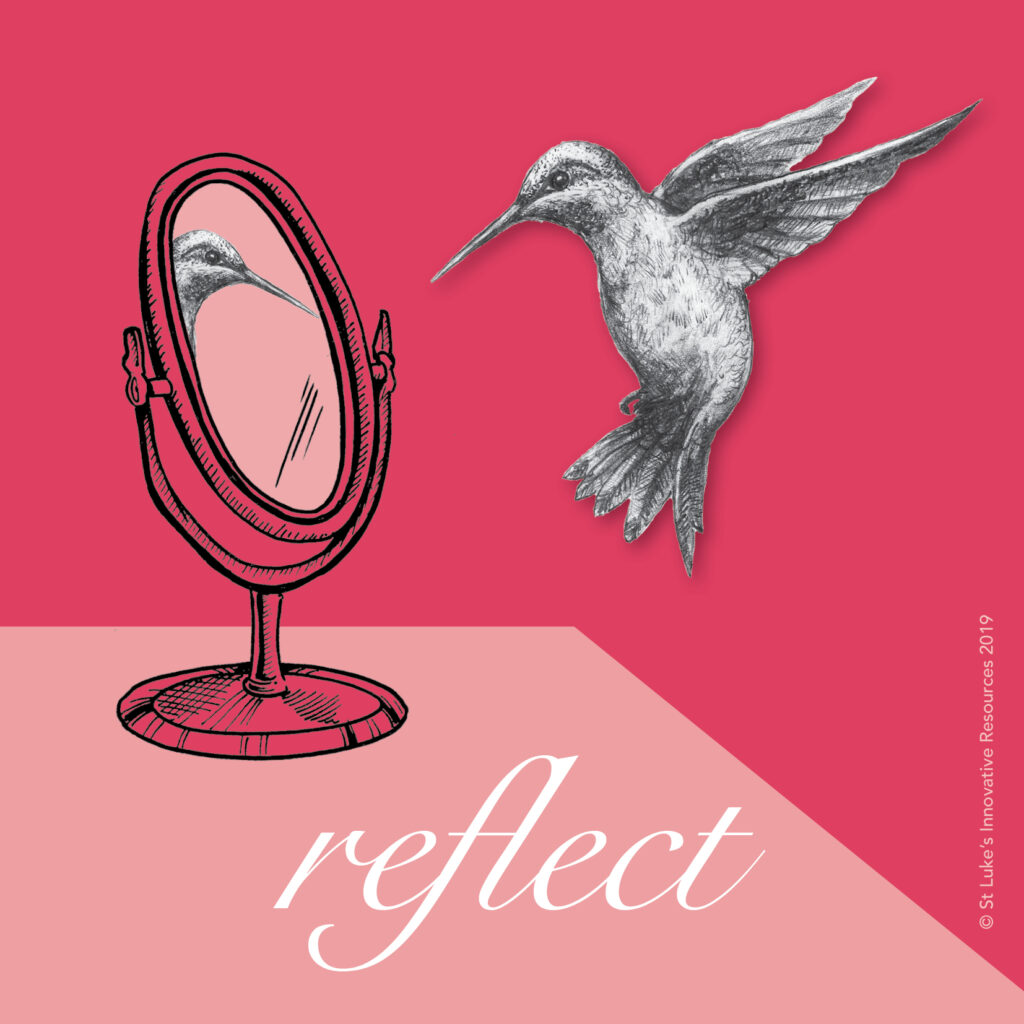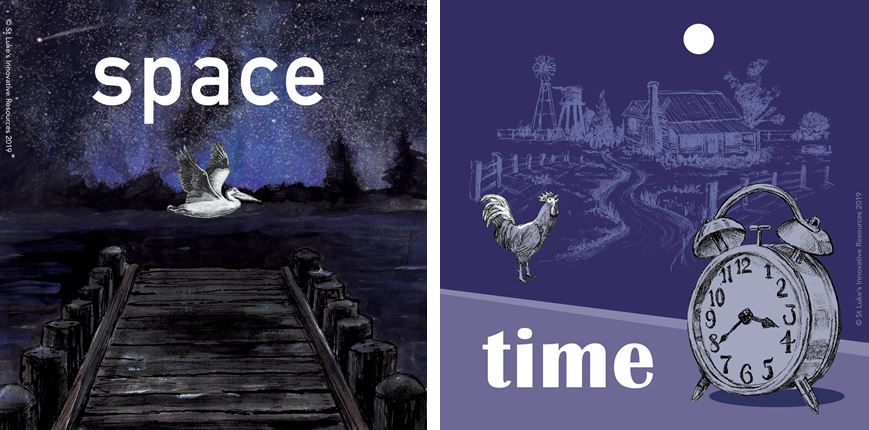Often in human service work, we are focussed on supporting people to find solutions and answers. After all, that’s what we are paid the big bucks to do!
But there is a lot that can be said for taking a step back and spending a little time in the company of our questions.
What does it mean to live inside a question?
Living inside a question means that we resist the urge to move straight to solutions. Instead, we spend time pondering our question; we inhabit it, we are curious.
We might become an observer of our question. We might take a step back and notice its shape, its texture, its tone. We might examine it for assumptions or hidden beliefs. We might interview it, buy it a drink, ask it about its childhood, or its footy team. We might sit with it in companionable silence.
Put simply, we don’t try and solve it. We just let it be.
Why is this helpful?
When we are in the midst of a crisis, it can be a relief to be given permission to stop and take time to reflect. Examining our questions and situation without feeling pressured to find solutions can be a crucial and invaluable part of the journey.
In his book Dark Nights of the Soul, Thomas Moore suggests that we learn more about ourselves in times of pain than in times of comfort. Our job is not to flee from these experiences but inhabit them and mine them for their gifts (Piatkus Books, Great Britain, 2004: pp.xiv-xv).
To do this, he says, we need to immerse ourselves in the intensity and insights that come when life is pared back to essentials and we are feeling everything intensely. In other words, we need to live inside the uncertainty.
Questions are inherently uncertain. That is the very nature of a question. By living inside a question for a while, by being curious and open, we can start to understand the complexity and layers in the question we are asking. There are many benefits to doing this.
Sometimes, when we are immersed in a challenging situation, we don’t even have a clear picture of the question we are trying to answer. What if we are asking the wrong question? If we are asking the wrong question, we are likely to be looking in the wrong places for answers. This may leave us feeling frustrated and lost.
Sometimes the question we are trying to solve is only a surface question. The real question lives a bit deeper, is more profound. For example, we may think that our question is, ‘Why can’t I stop procrastinating?’ If we reflect more deeply, we might find that our question is, ‘Why am I scared to succeed?’ or ‘How is my childhood experience of shame tripping me up in the present?’ By jumping straight to solutions or answers, we may miss the opportunity to explore the subtleties and nuances hidden beneath the original question.
Often taking the time to just ‘be’ also gives us the space to consider better quality questions. Instead of ‘Why me?’ for example, we might begin to ask, ‘Who else is experiencing something similar?’ or ‘Who can help?’ Instead of ‘What is wrong with me?’ we might start to ask, ‘What can I learn from this?’
It is also important to recognise that sometimes the answers or solutions to questions aren’t always related to the question. If someone is experiencing depression, for example, we may think that the solution lies with counselling, medication and psychoeducation. While these may be important, the person may have the biggest breakthrough when they find a part-time job or they learn to paint. So the question may be, ‘How can I recover from depression?’ The answer may be, ‘I am building a creative practice into my life.’ Or ‘Having a job gives me a sense of purpose.’
For workers and teachers who are supporting other people, enabling people to live in their question can be an empowering act of trust and encouragement. It tells the person that they are the ‘expert’ in their situation and you believe they have the capacity to reflect on their problems and find their own solutions. You simply need to listen and be present, to witness and provide an empathetic ear. Once a person indicates they are ready to move to a space of action, you can support them to think about what actions will be most helpful.
What kinds of questions can we live inside?
There are many complex, multifaceted or ponderous questions that may benefit from reflection. Sometimes asking a question stirs up an ant nest of other questions. Some questions have no answers, multiple answers, conflicting answers or answers that are hidden from view. When these complexities arise, rushing in to an action-focussed, solution-focussed space can undermine the process of change.
There are so many questions we might live inside. Some are big, like:
- Should I stay or go?
- How can I transform this debilitating self-doubt?
- How can I move past this?
- How can I make it stop?
- What should I do now?
- How can I overcome inertia?
- What do I want my future to look like?
Some are more focussed:
- What is a tiny first step I can take?
- Who can I talk to?
- What will help me get out of bed today?
- What is one thing that will make a difference?
All of these questions are important and valuable and they all benefit from introspection and exploration.
How can we support people to ‘live inside their questions’?
When we are supporting people to navigate their way through big life challenges, sometimes the best thing we can do is walk alongside them as they explore the implications and ‘edges’ of the challenge. They may need to sit with the experience (and the accompanying questions), meditate on it, rage at it, reflect on its density or porousness, play with it, make and unmake it, be vulnerable in the face of its uncertainty, reside within the flux of it.
Sometimes, it is about us giving people permission to sit quietly, holding their questions gently in their hands.
Workers and teachers may find this challenging if their funding requires that they create a plan to resolve the issue as quickly as possible.
Life-long questions
Life isn’t always neat and tidy and often answers are elusive. Sometimes we may live inside a question our whole lives. Such questions may define us.
Questions like:
- How can I move past my childhood trauma?
- Why do I always…?
- What is my purpose?
- How can I overcome my fear and do what I am here to do?
These are the big questions, the ones that shape us, that curve around us as we move through our lives. The quality of the questions we ask ourselves may make us who we are.
What are your life-long questions?
Written by Dr Sue King-Smith




A peace generating article.
Grace Swanson
Ames, Iowa USA
What lovely feedback, thank you Grace
What timely questions for us all to consider – even those of us that are doing OK during this pandemic. Thank you Dr Sue King-Smith for your words. We have applied for a grant for Mental Health Week in October around the theme in Qld of Take Time to Talk About Mental Health: Yarning it up in a Safe Place @ Deception Bay #4508. These questions are good starters for conversations. Namaste Chris
Hi Chris, I’m really glad to hear some of these questions might be useful in the conversations you are planning to have during Mental Health Week. Good luck with the grant application! It sounds like a great topic, and very timely. Cheers, Sue
I loved this article. What resonated the most for me was that “We might become an observer of our question. We might take a step back and notice its shape, its texture, its tone. We might examine it for assumptions or hidden beliefs. We might interview it, buy it a drink, ask it about its childhood, or its footy team. We might sit with it in companionable silence”. And that is exactly where the world is at for now, and I am too. Waiting to hear what this time of “suspension” is saying to me as I am companioning it.
Thanks Anna for your lovely comment. I really like your description too, of this being a ‘time of suspension’. That’s a powerful way to describe our current situation. It’s like time has thickened around us and everything is moving slowly and strangely. Hopefully your companionable waiting will unearth some valuable gifts and insights! Cheers, Sue